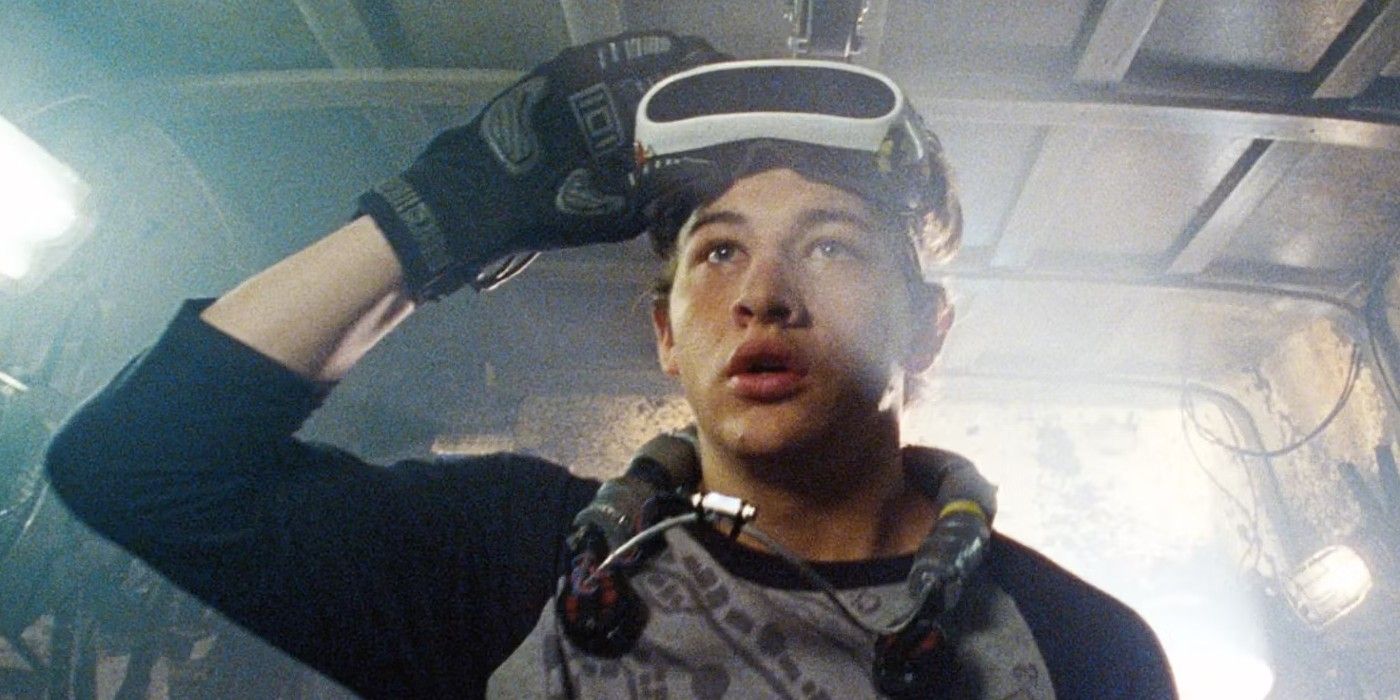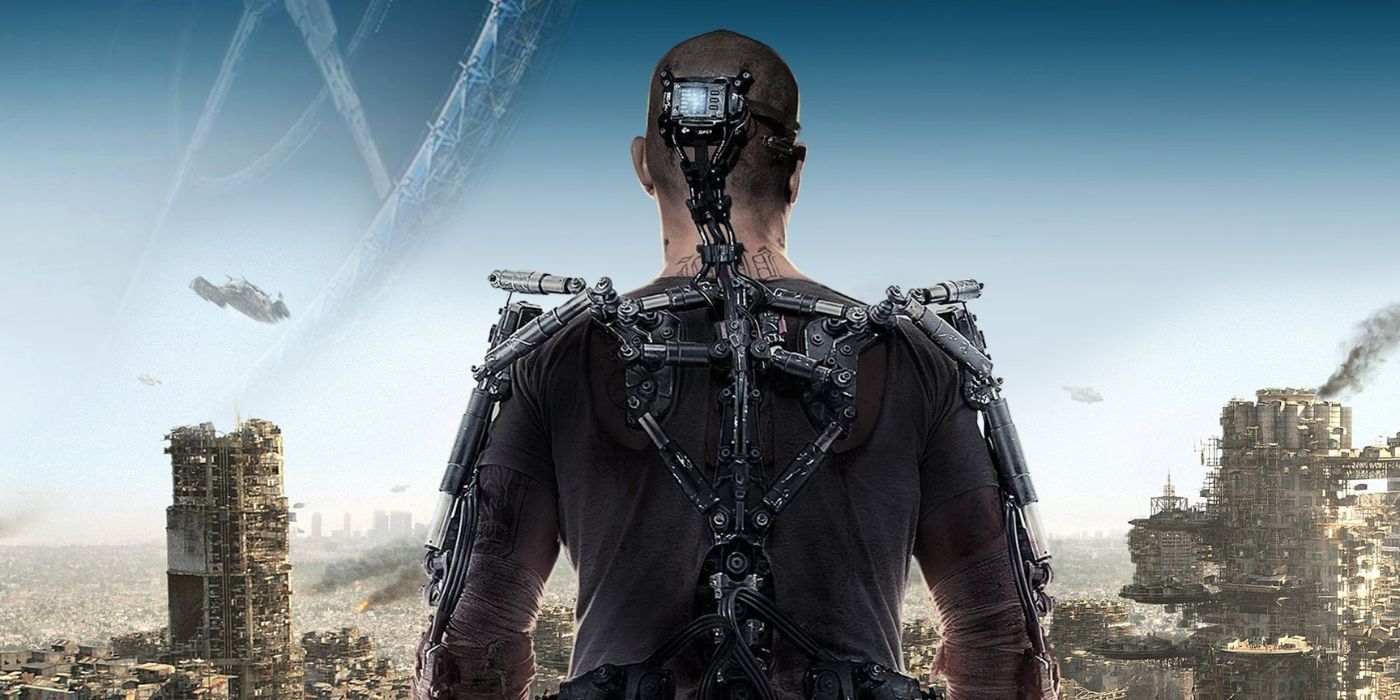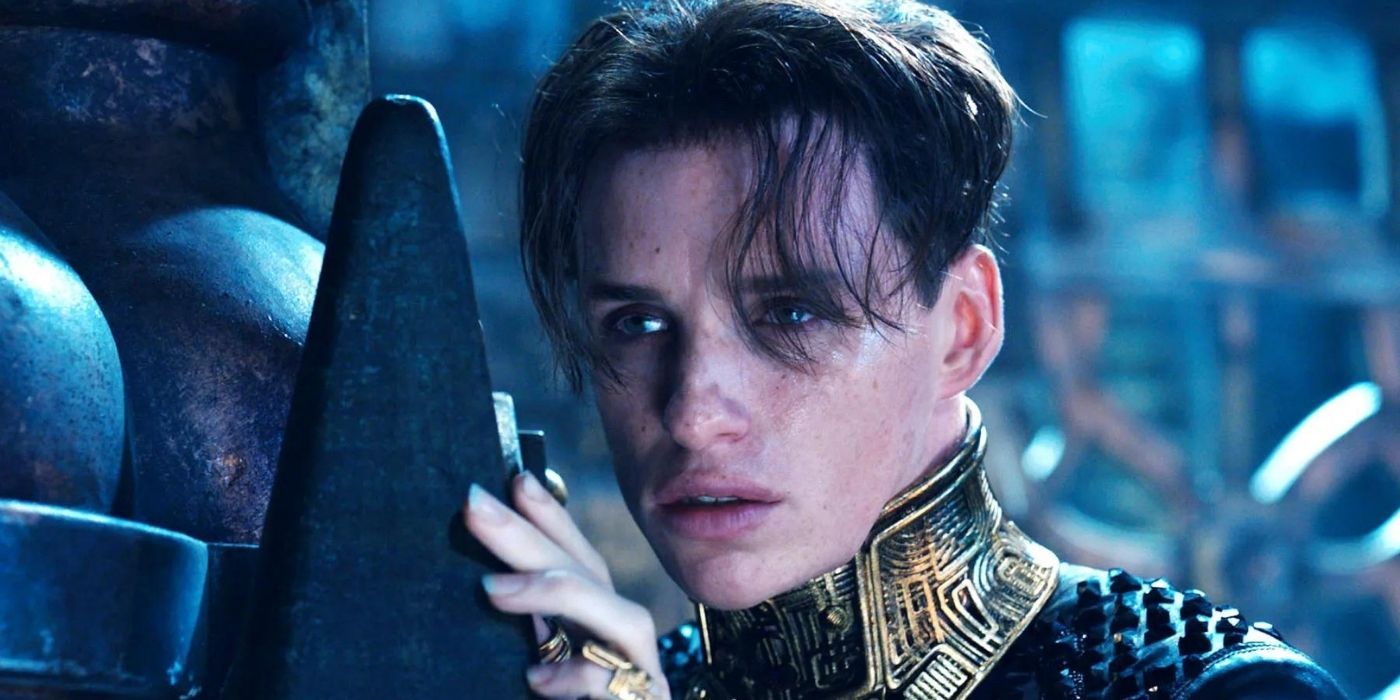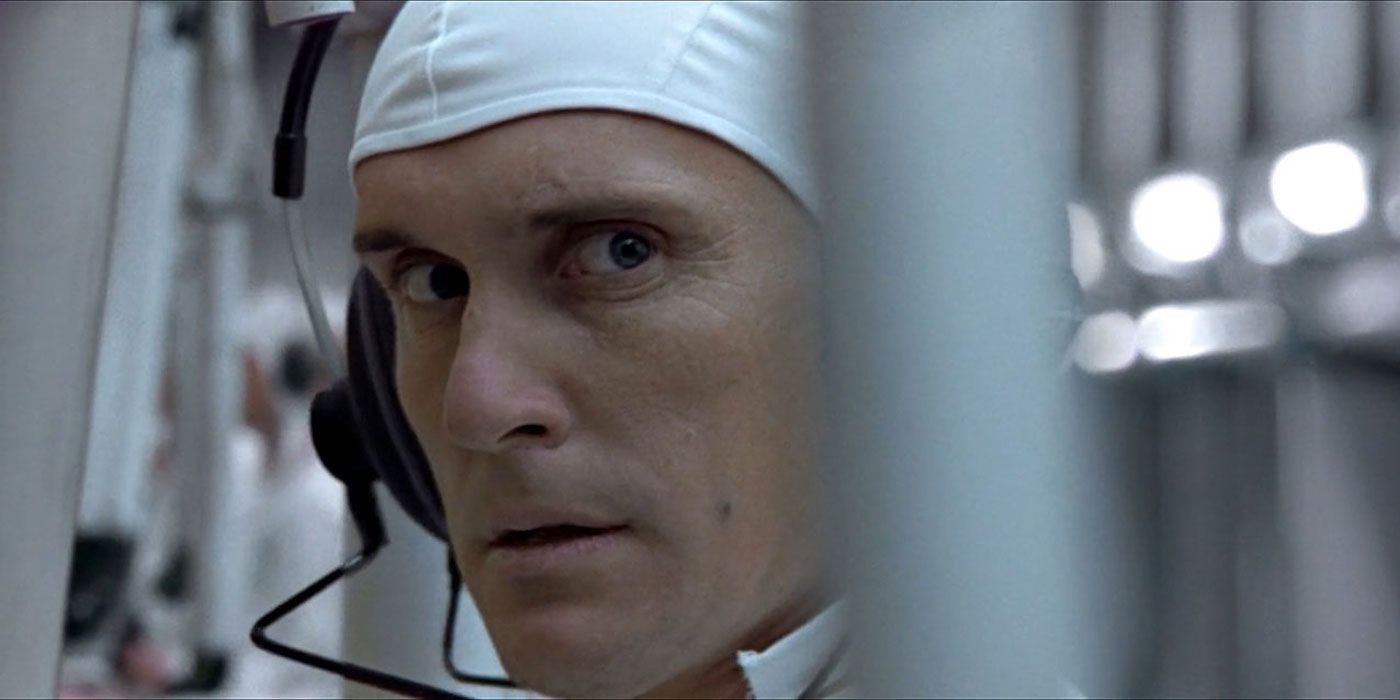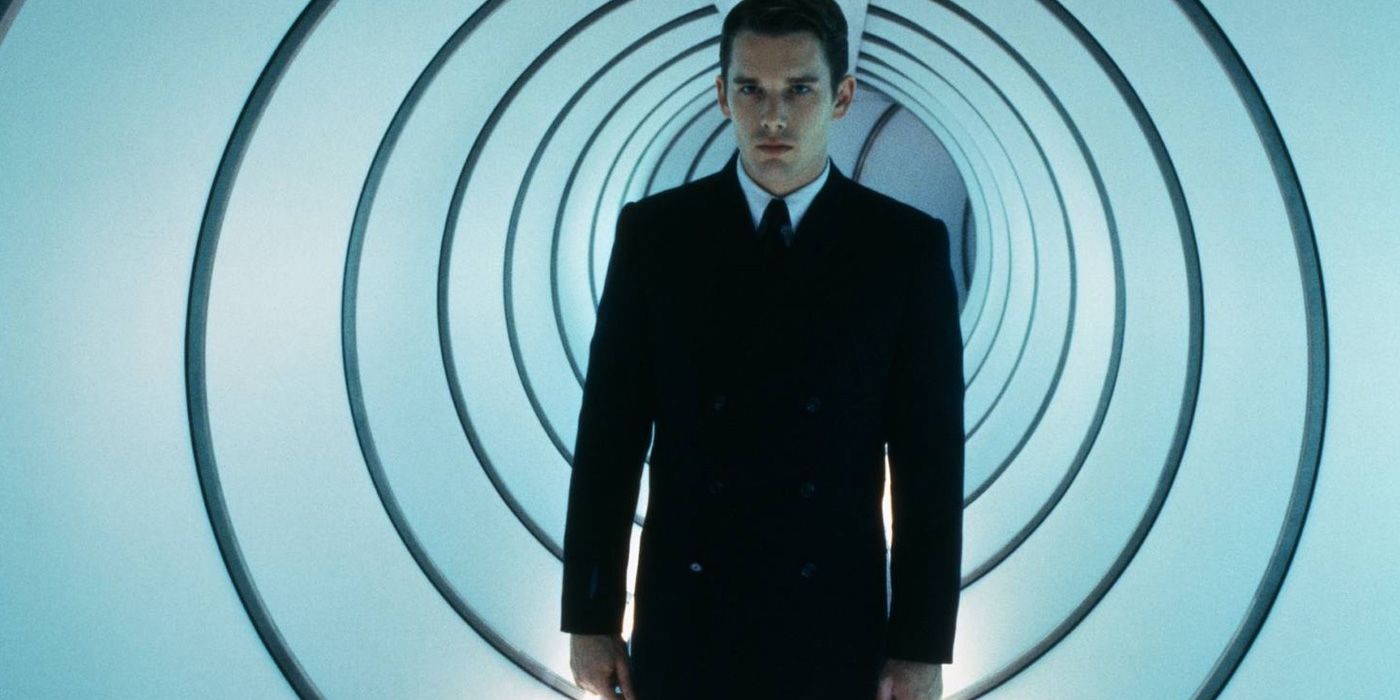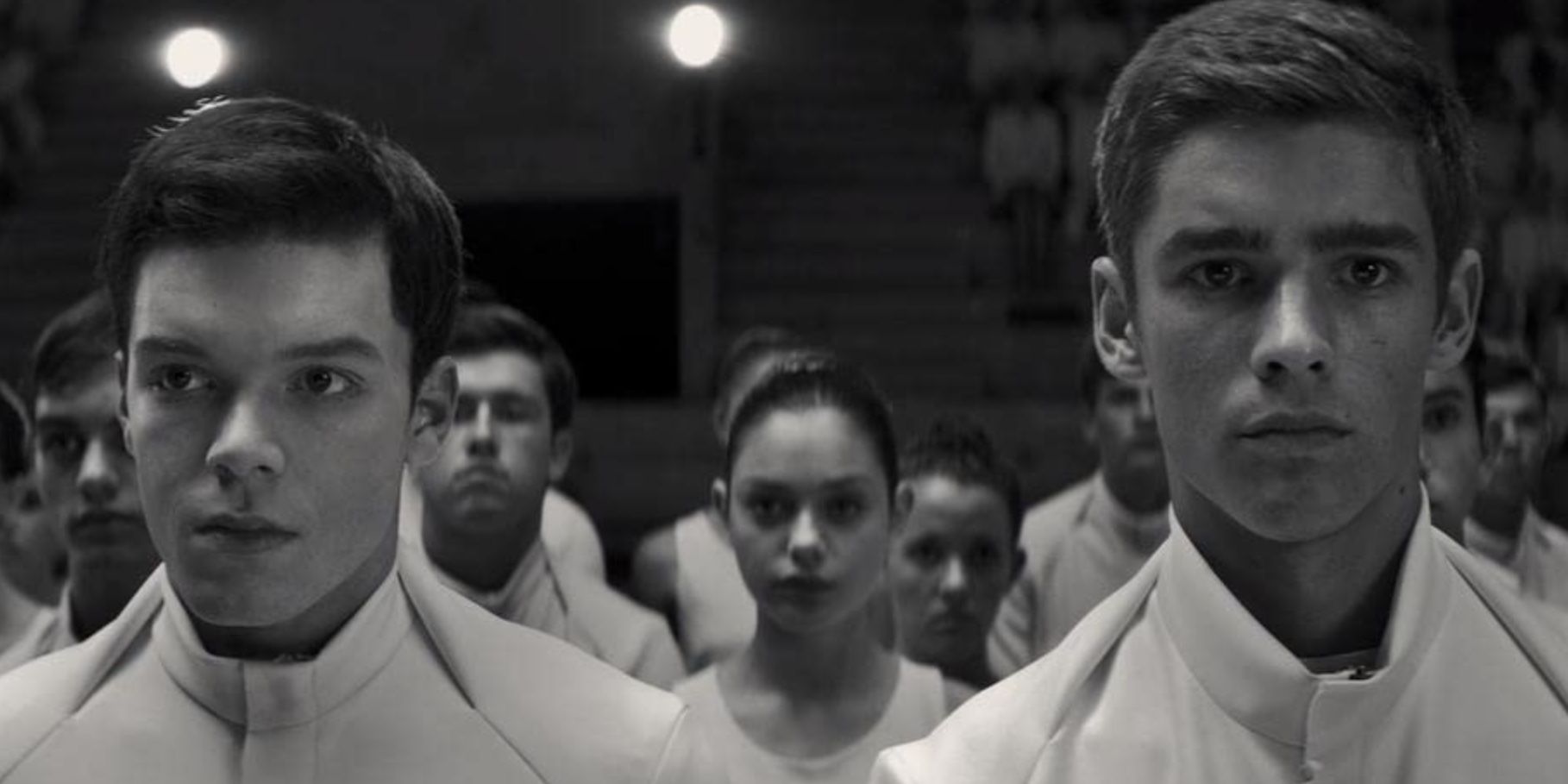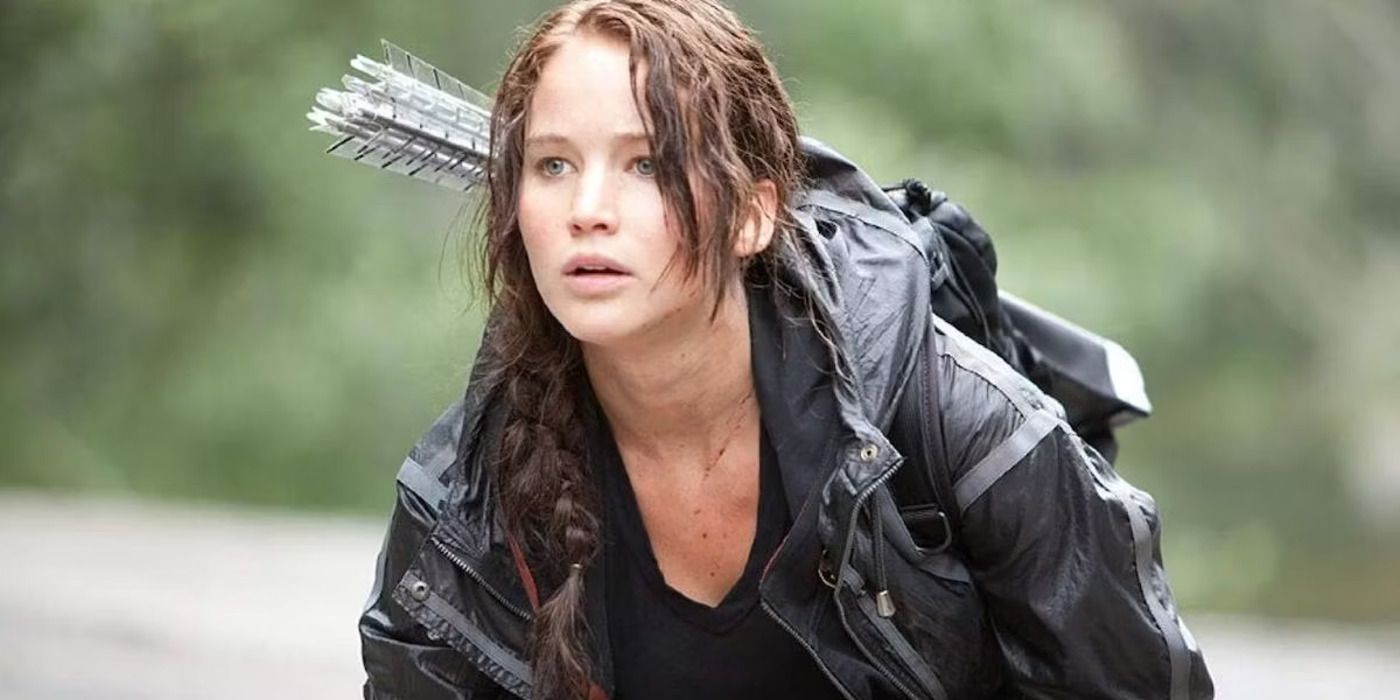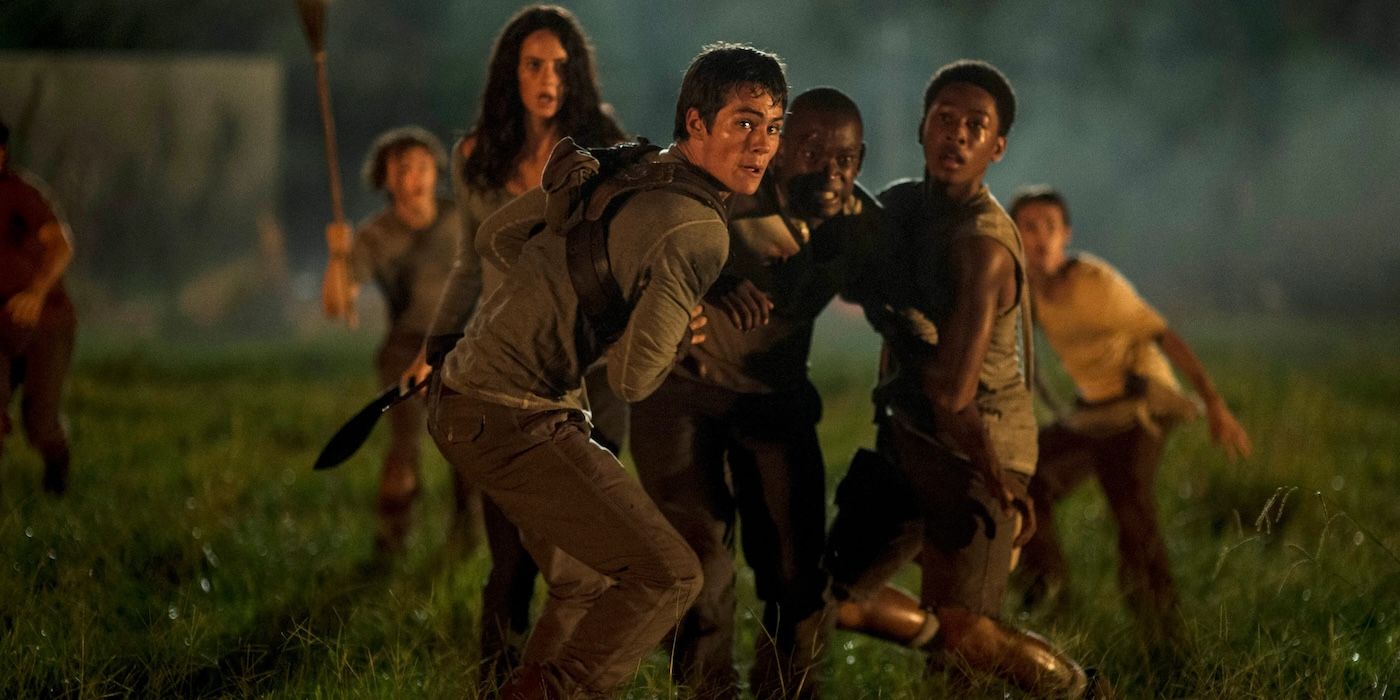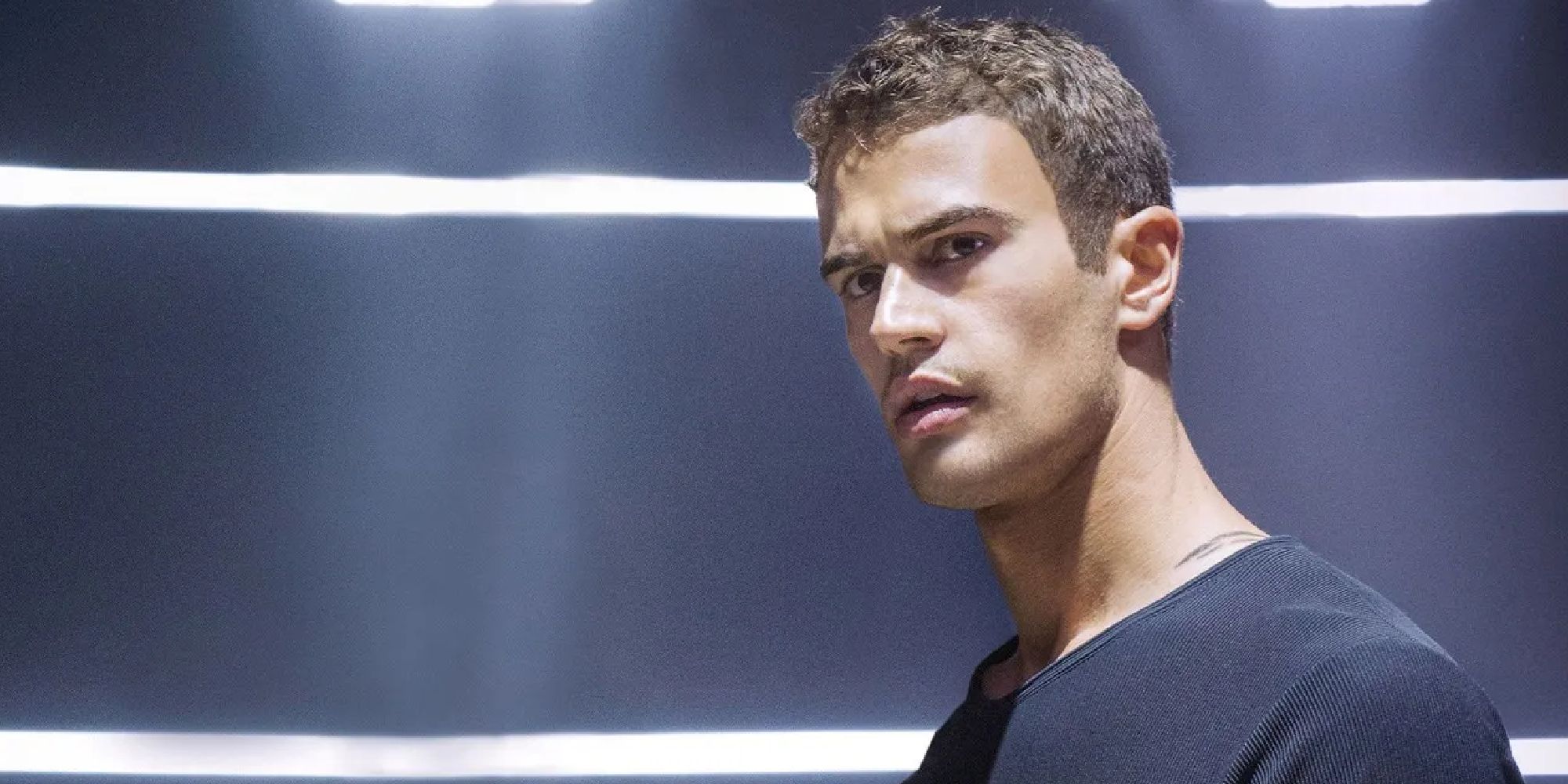Set in a future world where everyone undergoes extreme cosmetic surgery at 16 to become “pretty,” Uglies delves into the dark side of a society obsessed with perfection. The movie’s themes resonate with many other dystopian films that examine control, inequality, and personal freedom. Watchers of Uglies are likely drawn to stories that challenge societal norms, question the impact of technology, and explore themes of identity and rebellion.
From thought-provoking movies like Never Let Me Go and Gattaca, which explore genetic manipulation, to action-packed dystopian movies like The Hunger Games and Divergent,these films share common ground with Uglies by offering a glimpse into futures where technology and governance overstep their bounds. If you’re craving more of the same thrilling narratives with powerful protagonists challenging the status quo, the movies on this list are for you.
WATCH ON NETFLIX
10 ‘Never Let Me Go’ (2010)
Directed by Mark Romanek
Never Let Me Go is a science fiction romance that follows Kathy (Carey Mulligan), Tommy (Andrew Garfield), and Ruth (Keira Knightley), three friends who grow up at a seemingly idyllic English boarding school called Hailsham. As they grow up, they gradually discover the horrifying truth: they are clones created solely to donate their organs and die young. The movie delves into their relationships, limited understanding of their fate, and attempts to find meaning in their brief lives.
Never Let Me Go and Uglies both explore dystopian societies where individuals’ lives are controlled by an oppressive system. In Never Let Me Go, the clones’ existence is dictated by their purpose as organ donors, while in Uglies, society enforces extreme cosmetic surgery to maintain uniformity and control. Both movies explore themes of identity, freedom, and the cost of conforming to societal expectations. The protagonists in each movie must confront harsh realities about their lives and challenge the systems that seek to dehumanize them.
9 ‘Ready Player One’ (2018)
Directed by Steven Spielberg
Ready Player One is set in a dystopian future where most humanity escapes the grim reality of their world by immersing themselves in the OASIS, a vast virtual reality universe. The story follows Wade Watts (Tye Sheridan), a teenager obsessed with finding an Easter egg hidden in the OASIS by its late creator, James Halliday (Mark Rylance). Whoever finds the egg will inherit Halliday’s fortune and control of the OASIS. Wade, along with other players searching for the Easter known as “gunters,” races against a powerful corporation to solve the riddles and challenges.
One of the highest-grossing original science fiction movies, Ready Player One explores themes of technology-driven dystopian societies where the line between reality and artificial control blurs. In Uglies, society enforces extreme cosmetic surgery to create conformity, while in Ready Player One, people escape reality through the virtual world of the OASIS to reinvent themselves. Both movies highlight the consequences of losing individuality and freedom in a world shaped by technology and societal control.
8 ‘Elysium’ (2013)
Directed by Neill Blomkamp
Elysium is set in the year 2154. Earth has become overpopulated and polluted, and the wealthy elite live on a luxurious space station called Elysium, free from disease and suffering, while the rest of humanity remains on Earth, struggling in poverty. Max (Matt Damon), a factory worker with a terminal illness, embarks on a dangerous mission to infiltrate Elysium and access its advanced medical technology, becoming involved in a larger struggle to bring equality between the two worlds.
Elysium is an underrated science fiction movie that offers deep-cut commentary on social class. Elysium and Uglies depict societies divided by inequality and rigid control. In Elysium, wealthy people live in a utopian space station while the poor struggle on a decaying Earth, much like how the “Pretties” in Uglies live in luxury after undergoing surgery, while “Uglies” are marginalized. Both movies explore the theme of societal segregation based on physical or social status.
7 ‘Jupiter Ascending’ (2015)
Directed by the Wachowskis
Jupiter Ascending follows Jupiter Jones (Mila Kunis), a young woman living a mundane life on Earth who discovers she is the genetic reincarnation of an intergalactic queen and holds the key to controlling Earth. As the rightful heir to a powerful alien dynasty, Jupiter is thrust into a battle for her inheritance. With the help of Caine (Channing Tatum), a genetically engineered soldier, she must navigate political intrigue and fight against members of her royal family who seek to eliminate her.
Jupiter Ascending is a divisive movie that is very hated by some, while having die-hard fans. Jupiter Ascending and Uglies share similar themes of hidden destinies and social stratification. The protagonists of both movies question the systems governing their worlds; Jupiter resists the powerful forces that seek to exploit her, much like Tally challenges the superficial norms that dictate her society.
6 ‘THX 1138’ (1971)
Directed by George Lucas
THX 1138 is set in a dystopian future where humanity is controlled by a totalitarian government that suppresses emotions and individuality through mandatory drugs and constant surveillance. Citizens live underground in sterile, uniform environments, stripped of personal identity. The movie follows THX 1138 (Robert Duvall), a worker who stops taking his government-issued sedatives and begins to experience emotions and desires, leading him to question the oppressive system and form a romantic relationship with a fellow citizen, LUH 3417 (Maggie McOmie).
In THX 1138, society enforces conformity through drugs and surveillance, erasing personal identity. Similarly, in Uglies, a society mandates physical transformation to enforce uniform beauty and social harmony. Both movies critique societal control and the loss of individuality. THX 1138’s rebellion against drug-enforced numbness parallels Tally’s resistance to forced cosmetic surgery. As one of the most experimentalGeorge Lucas movies, THX 1138 deserves a watch.
RENT ON Amazon
5 ‘Gattaca’ (1997)
Directed by Andrew Niccol
In a future where genetic engineering determines social status, Vincent Freeman (Ethan Hawke) is born naturally and deemed inferior due to his genetic profile. Despite his aspirations to travel into space, he faces societal discrimination. To overcome this, Vincent assumes the identity of a genetically “perfect” individual by using stolen DNA to secure a job at Gattaca Aerospace Corporation. His deception nearly succeeds until a murder investigation threatens to expose his true identity.
Gattaca is a cerebral science fiction movie that will keep audiences thinking and a mystery that will keep them guessing. Gattaca and Ugliescritique societies that enforce conformity through biological means. Gattaca assumes a thought-provoking approach to its questioning of the ethics and the true purpose of science. It’s far more intelligent and enveloping than Uglies, too, meaning fans of the latter will probably appreciate it far more.
4 ‘The Giver’ (2014)
Directed by Phillip Noyce
The Giver follows Jonas (Brenton Thwaites), who lives in a seemingly perfect, highly controlled community where emotions and memories are regulated to maintain order and eliminate pain. At the age of 12, he is selected to be the Receiver of Memories, a role that involves inheriting the collective past of humanity from the current Receiver, an elderly man known as The Giver (Jeff Bridges). As Jonas learns about the depth of human experiences, both joy and suffering, he becomes increasingly disillusioned with the community’s suppression of individuality and freedom.
The Giver and Uglies feature societies that impose conformity to suppress individuality. Both stories follow protagonists who question and resist these societal controls, seeking to reclaim their identities and discover a more authentic existence beyond the constraints imposed by their societies. Furthermore, both stories feature young protagonists, thus blending traditional teen tropes with a more straightforward sci-fi element, producing uneven but worthwhile results.
3 ‘The Hunger Games’ (2012)
Directed by Gary Ross
The Hunger Games is set in a dystopian future where the nation of Panem is divided into 12 districts and the Capitol. Each year, a boy and girl from each district are chosen as “tributes” to participate in the Hunger Games, a televised fight-to-the-death competition. Katniss Everdeen (Jennifer Lawrence) volunteers to take her sister Prim’s (Willow Shields) place as the female tribute from District 12. Alongside her fellow tribute, Peeta Mellark (Josh Hutcherson), Katniss must navigate the deadly arena while grappling with alliances, betrayal, and survival.
The Hunger Games sparked the resurgence of TA dystopian novels and movies in the 2010s and remains the best. Both stories center on protagonists who challenge oppressive systems by rebelling against authoritarian control. The Hunger Games expands over four main movies and a prequel, and they are all worth a watch for all those looking to consume more stories about how bleak things can get if human individuality, creativity, and independence are compromised.
2 ‘The Maze Runner’ (2014)
Directed by Wes Ball
The Maze Runner follows Thomas (Dylan O’Brien), who wakes up in a mysterious, ever-changing maze with no memory of his past. He finds himself in a community of boys known as “Gladers” who have been trapped in the maze for years and send runners to explore the maze daily, hoping to find an exit. When a girl named Teresa (Kaya Scodelario) arrives with a cryptic message, the maze becomes more dangerous, and the Gladers face increasing threats.
The franchise is one of the most underrated young adult dystopian franchises. Both movies feature protagonists who stand out because of their desire to challenge notions of what’s “safe” and “known.” They strive to uncover hidden truths and regain their freedom while fighting to discover whatever it is that makes them unique. Both movies also feature a less expansive world, unlike other sci-fi dystopias that showcase more elaborate settings.
1 ‘Divergent’ (2014)
Directed by Neil Burger
Divergent is set in a future dystopian Chicago, where society is divided into five factions based on human virtues: Abnegation (selflessness), Dauntless (bravery), Erudite (knowledge), Amity (peace), and Candor (honesty). At sixteen, Tris Prior (Shailene Woodley) discovers she is “Divergent,” possessing traits from multiple factions, making her a target for those who seek to control or eliminate threats to their power. As she joins Dauntless and uncovers a conspiracy led by Erudite to seize power, Tris must navigate dangerous trials and alliances while concealing her Divergence.
In Divergent, society is divided into factions that dictate people’s roles and behaviors, and in Uglies, conformity is achieved through mandatory cosmetic surgery to ensure uniform beauty and societal harmony. Both Tris and Tally challenge these restrictive systems, resisting societal pressures and uncovering hidden truths about their oppressive environments. Each story highlights themes of identity, rebellion against controlling institutions, and the quest for personal freedom in the face of enforced conformity.


